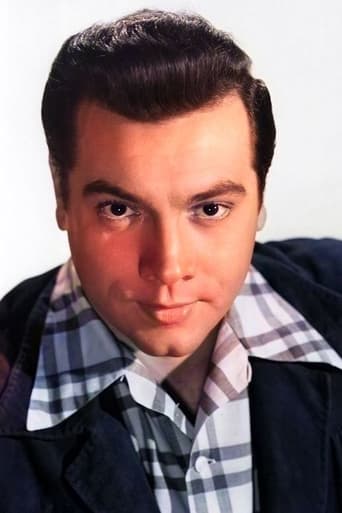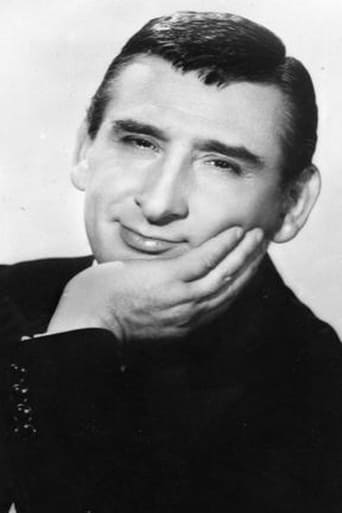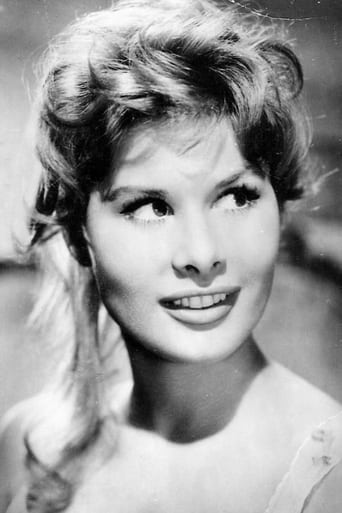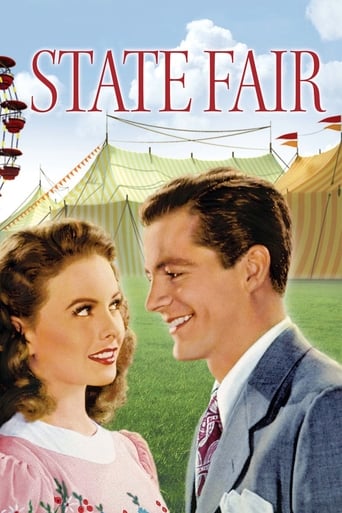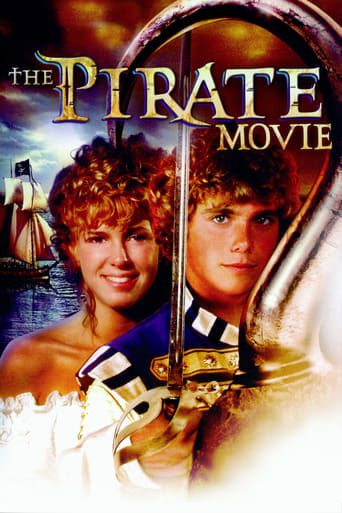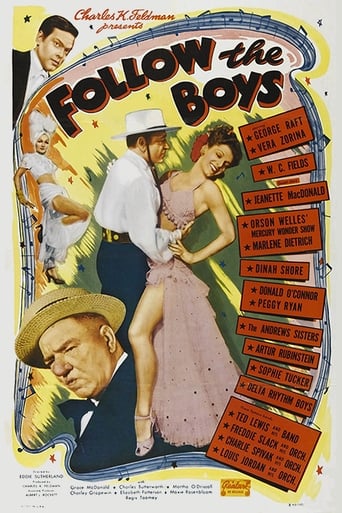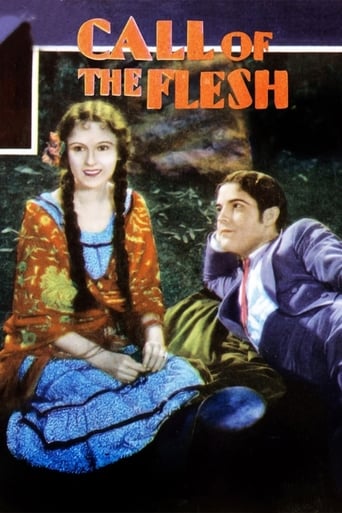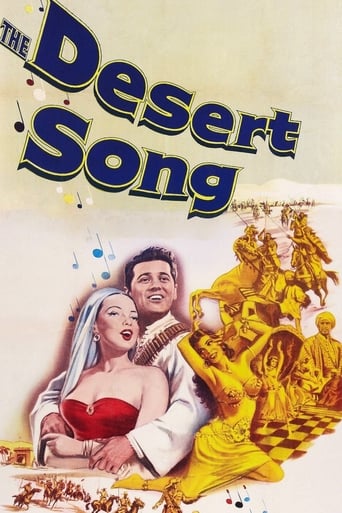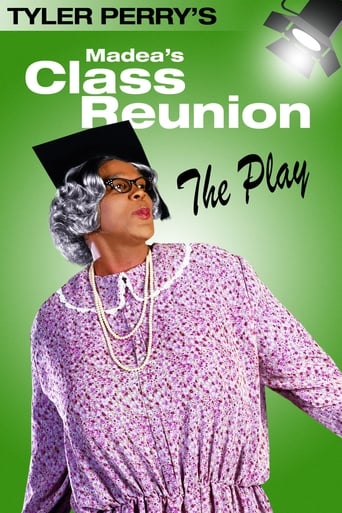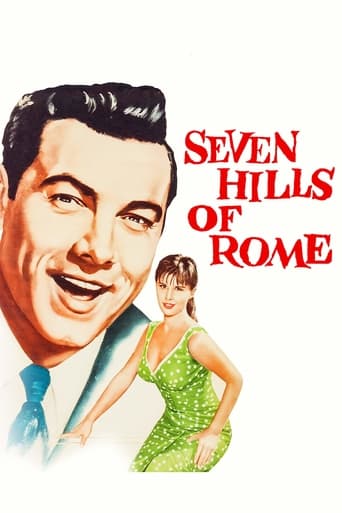
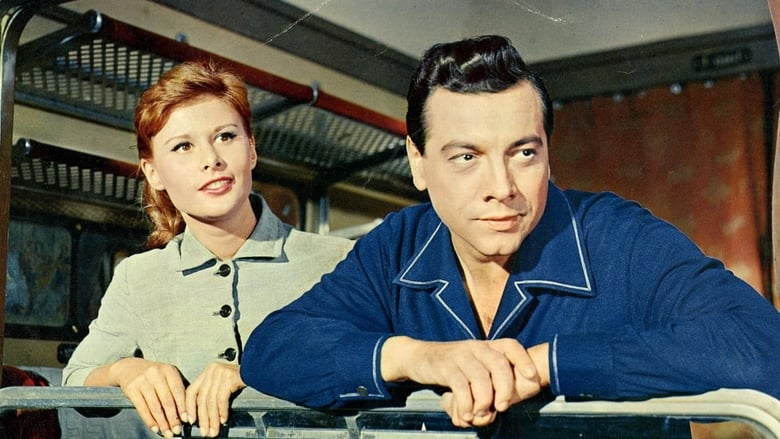
Seven Hills of Rome (1958)
After having a fight with his girl friend, Marc follows her to Rome to try and win her back. On the train he meets a girl who is on her way to stay with her uncle. He gives her a lift to her uncle's, but they discover he has gone to South America. So as she has nowhere else to go, she stays with Marc and his cousin, which inevitably leads to romance.
Watch Trailer
Cast
Similar titles
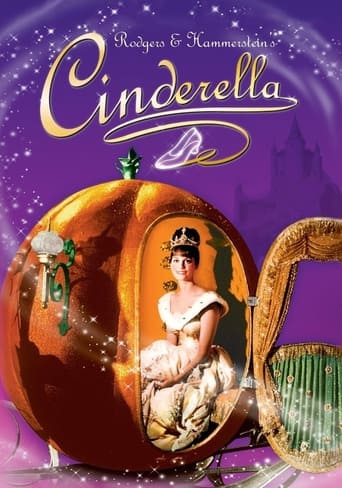
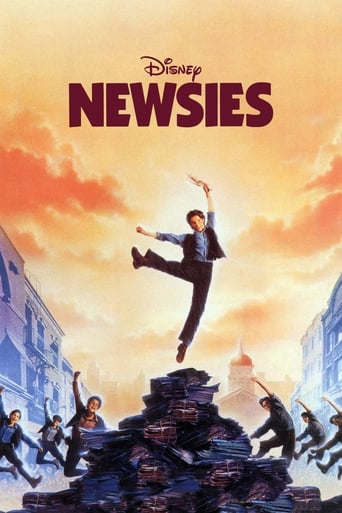
Reviews
Simply A Masterpiece
Don't Believe the Hype
Yo, there's no way for me to review this film without saying, take your *insert ethnicity + "ass" here* to see this film,like now. You have to see it in order to know what you're really messing with.
One of the worst ways to make a cult movie is to set out to make a cult movie.
Songs: "The Seven Hills of Rome" (Music by Victor Young, lyrics by Harold Adamson), "Calypso Italiano" (George Stoll), "M'Appari", "All the Things You Are", "Come Dance With Me", "Lolita", "Ay, Ay, Ay", "Loveliest Night of the Year", "Ti Voglio Benne Tanto Tanto", "Na Canzone Pe Fa Ammore", "Venticello di Roma", "E' Arrivato La Bufera", "Ostricaro Innamorato", "Vogliamaci Tanto Bene", "There's Gonna Be A Party Tonight", "Imitation Routine", and "Arrivederci Roma" (Renato Rascel, Carl Sigman), "Never Till Now" (John Green, Paul Francis Webster), "Earthbound" (Jack Taylor, Clive Richardson, Bob Muset), "Questa o Quella" (from Rigoletto by Giuseppe Verdi), "Temptation" (Arthur Freed, Nacio Herb Brown), "Jezebel" (Wayne Shanklin), "When the Saints Go Marching In" (traditional), "Memories Are Made of This" (Terry Gilkyson, Richard Dehr, Frank Miller).A Le Cloud Production. Distributor: Metro-Goldwyn-Mayer. Producer: Lester Welch. Filmed by Titanus S.P.A. at Titanus Studios in Rome. New York opening at the Radio City Music Hall: 30 January 1958 (ran 3 weeks). U.S. release: January 1958. U.K. release: 18 May 1958. Australian release: 16 June 1958. Sydney opening at the St James. 107 minutes. Cut to 104 minutes in Australia. 103 minutes in the U.K.SYNOPSIS: After losing his American TV show because of temperament, singer Marc Revere goes to Rome and his cousin Pepe's bohemian apartment. He is accompanied by Rafaella, a young Italian girl he met on the train after she had lost all her money. While Marc is singing in a fashionable night club, his erstwhile American fiancée Carol re-appears.COMMENT: "Seven Hills of Rome" looks a more attractive proposition on paper than it does in actual fact. Rome in Technirama and Technicolor is a rather drab affair. The actual locations look more like backdrops than real backgrounds.Lanza's singing? Well the songs by and large are not worthy of his talents and his series of imitations (Laine, Martin, Como, Armstrong) looks better than it actually sounds (oddly enough, the Armstrong "When the Saints Go Marching In" comes off best).Miss Allasio is only a moderately fetching heroine and as for Renato Rascel, minus his mustache and in a serious rather than a comic role, he just fails to make any impression. Is it his own voice? The direction, while it affords some scenic helicopter glimpses of Rome, is strictly functional. And as for the hokey plot, which comes on about ¾s of the way through with Miss Allasio lifting a bracelet, you can keep it. The Peggie Castle sub-plot is just as dull and clichéd but at least it enables a bit of glamour to sift across the screen — though Miss Castle is herself surprisingly bland and uninteresting in this effort. The direction is economy style, with Miss Allasio's fall in the rain obviously contrived.But for rabid Lanza fans for whom their idol can sing no wrong, he is looking good.
As a fan of opera and as somebody who loves Mario Lanza's voice, Seven Hills of Rome(or Arrivederci Roma) is not a bad film and has some good things about it, but it could have been better and Lanza's other films showcase his talents much more.The stars here are the cinematography and the Rome scenery itself. The cinematography is bursting with gorgeous colour and is the very meaning of lavish, capturing Rome beautifully. The scenery itself is just splendid, so much so it makes one wish they were back in Rome, and the film does a good job making the costumes and settings as authentic as possible. Seven Hills of Rome has a music score that's energetic and romantically whimsical, and while only Questo a Quella from Verdi's masterpiece Rigoletto and the unforgettable Arrivederci Roma(which is the highlight of the film other than the visuals) are truly memorable the songs themselves are very pleasant and hummable.Lanza is not at his absolute best, and Seven Hills of Rome is the film that showcases his talents the least effectively(he definitely deserved more music to sing), he still sounds great with his very distinctive tone ringing and beautiful and his phrasing and musicality very good too. Marisa Allasio and Peggie Castle are charming and Renato Reschel brings some amusing comedy.Sadly, the story is poor, even for a Lanza film where it was never was a strong point, the reason being that it is so flat and wafer-thin that it is almost non-existent and seems more of an excuse to string alone scenes together. It also has a tendency to move along a little sluggishly and aimlessly and with any charming or amusing moments being in spades rather than consistent. The script fares even worse, getting increasingly tedious and meandering, with comedy that doesn't really sparkle(ranging from mildly amusing to falling flat) and parts that could have been trimmed easily. And while Lanza does sound great here, his acting is another story. It has its moments, like in Arrivederci Roma but he does try too hard and comes over as stiff. His impersonation scene is also hit-and-miss, his impression of Dean Martin is not bad but his one for Louis Armstrong is so off the mark it's embarrassing. He is not the only person whose acting is not great, because the acting generally is either too broad or going-through-the-motions, while the direction generally is limp.In conclusion, Lanza was a great talent that we lost too soon, but Seven Hills of Rome does not show it as well as his other films. Has its moments but of Lanza's films it's by far his weakest. 5/10 Bethany Cox
Mario Lanza is an American singer looking for his fiancé (Peggie Castle) in Rome in "Arrivederci Roma" aka "The Seven Hills of Rome." The threadbare plot consists of Lanza, as Marc Revere, meeting a destitute young woman, Raffaela (Marisa Allasio) on a train. He takes her to stay with his cousin Pepe. Pepe falls in love with her; she falls in love with Marc.The plot exists only to take the audience on a dazzling tour of Rome and to have an opportunity to listen to some beautiful music. This was the film that introduced the hit song "Arriverderci Roma." Lanza also sings "The Seven Hills of Rome," and part of "M'appari." Marc blunders into a talent show where his cousin is playing accompaniment and announces he will sing an aria from the opera "Rigoletto" and somehow Pepe knows it's "Quest o' quella" instead of the more famous "La Donna e Mobile." Probably the most entertaining scene is Lanza entertaining some young rock and rollers in Pepe's courtyard with imitations of Perry Como, Frankie Laine, Dean Martin, and Louis Armstrong.Having just heard Lanza do some of his best singing in "Because You're Mine," the change in the tenor's voice after six years of drinking was apparent, not to mention that he looked bloated. The voice had darkened; the top was sometimes strained, as well as the approach pushed, and some of the high notes had a covered sound. It's not unusual for a voice to change in this way - but not at the age of 37. However, he could still pull it out when he needed to, and often does throughout the film."Arrivederci Roma" is a pleasant film but heartbreaking to realize that Lanza is almost at the end of his downward spiral and that it would be stopped by his death. He was one of music's brightest lights.
It's ironic that Seven Hills of Rome (Italian title: Arrivederci, Roma) made a reasonable splash at the box office - particularly in Italy, where it was a huge success. After all, it's undoubtedly Mario Lanza's weakest movie effort, and a film that the tenor went to great pains to distance himself from. Lanza was particularly hard on his own performance, but watching the movie 45 years later it's immediately apparent that the fault isn't his, but rather the meandering script and lack-lustre direction. To make matters worse, there is very little in the way of substance for Lanza to sing. Still, there are a few compensations along the way...Lanza's previous film, the much underrated Serenade, was a poor performer at the box office in 1956. Nervous producers decided that Lanza's next movie should shift the emphasis away from the drama and solid operatic selections to a much lighter presentation of the popular tenor. Unfortunately they went too far, reducing Lanza to just one aria (Questa O Quella from Rigoletto) and a fragment of another. Instead of his usual role as an opera singer, Lanza is merely a TV/nightclub performer this time, and his selections include the pretty Arrivederci, Roma and a handful of largely forgettable popular ballads. Ironically, the biggest vocal highlight of this movie is Lanza's imitations of OTHER singers. His impersonations of Perry Como, Frankie Laine, Dean Martin and - believe it or not - Louis Armstrong are hilarious, and amazing in their accuracy.The original script was reportedly a good one, but the producers soon realised that it contained enough material for a five-hour movie. This resulted in drastic re-writes (even on the film set), and therein lies the problem. This is a movie without a solid story, and instead we are left with some enchanting shots of Rome, some sporadically good acting from Lanza, and two engaging co-stars in the Loren-lookalike Marissa Allassio and the popular comedian Renato Rascel.This movie will probably not win Lanza any new admirers, but diehard fans will enjoy it. Happily, Lanza's next (and final) movie, For the First Time, was a considerable improvement, with enough opera AND popular ballads to satisfy every type of music lover.
